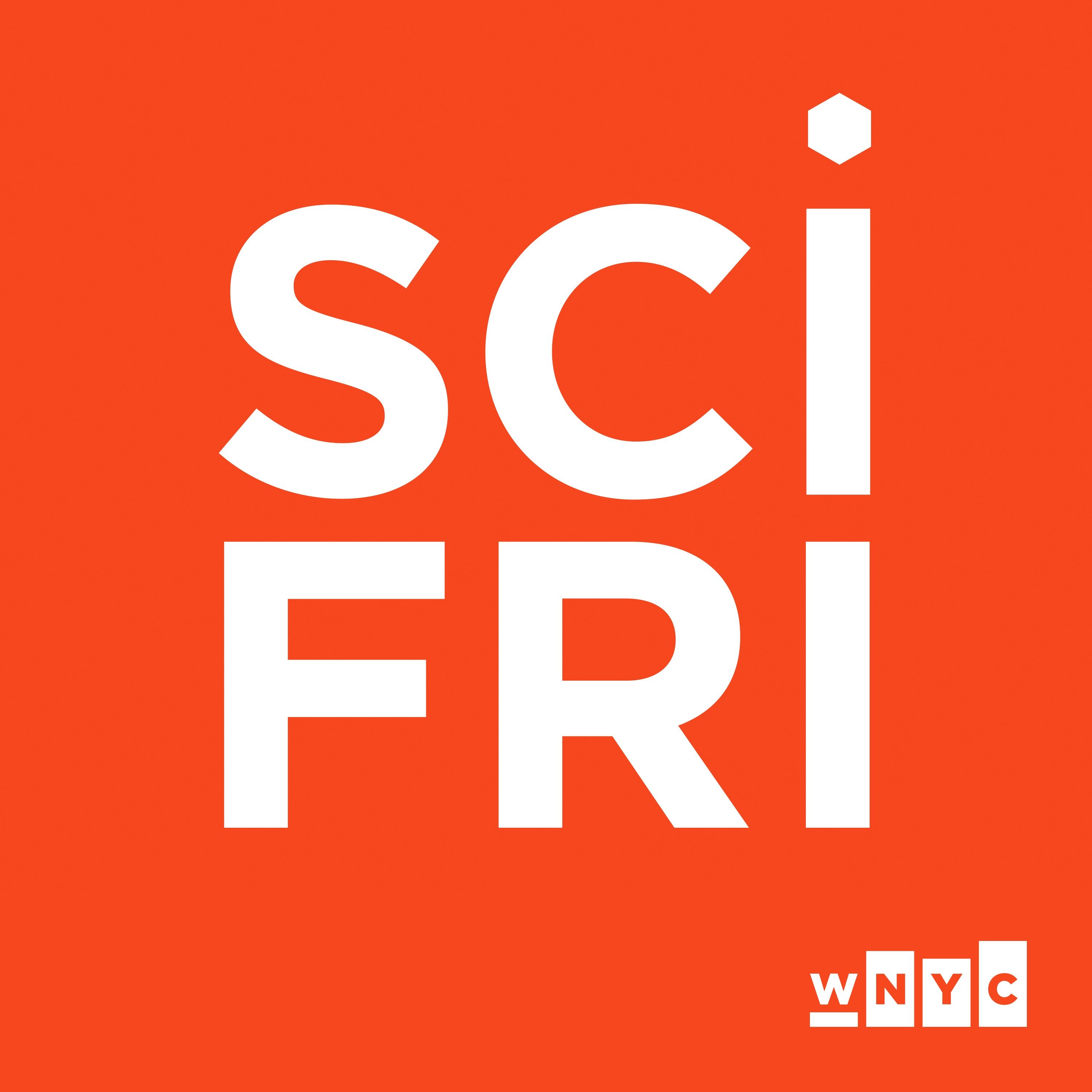

Science Friday
Science Friday and WNYC Studios
Covering the outer reaches of space to the tiniest microbes in our bodies, Science Friday is the source for entertaining and educational stories about science, technology, and other cool stuff.
Episodes
Mentioned books

Nov 21, 2025 • 14min
African Grey Parrots Are Popular—And It’s Fueling Illegal Trade
Rene Ebersole, Editor-in-chief at Wildlife Investigative Reporters and Editors (WIRE), dives into the illegal trade of African grey parrots, now internet sensations. She reveals how online fame drives up demand, leading to trafficking networks that threaten the species. Ebersole discusses the high prices for these birds, the poaching operations, and the dark trade routes reaching Asia and the Middle East. With insights into conservation status and smuggling tactics, she emphasizes the urgent need for better enforcement and the role of social media in this crisis.

Nov 20, 2025 • 12min
Attention, Trivia Nerds! It’s A Food Science Fact Feast
Mangesh Hattikudur, trivia expert and co-host of the Part-Time Genius podcast, joins medical student Emily for an exhilarating food science trivia showdown. They delve into fascinating topics like how pandas can't detect umami and why honey never spoils. The duo discusses the intriguing Maillard reaction behind flavorful browning and deciphers the Scoville scale's chili heat origin. And did you know carbon-rich peanut butter can turn into diamonds? Tune in for these quirky facts and more!

Nov 19, 2025 • 19min
Can Animal Super-Agers Teach Us Their Secrets?
Dr. Vera Gorbunova, a leading biologist from the University of Rochester, and Dr. Juan Manuel Vazquez, an expert on aging at Penn State, delve into the secrets of animal super-agers. They explore how certain bats and bowhead whales defy aging norms, boasting exceptional longevity and low cancer rates. Discover their unique DNA maintenance strategies and the hopeful implications for human health. The duo shares insights on leveraging animal defenses to develop treatments that may improve human lifespan and reduce age-related illnesses.

13 snips
Nov 18, 2025 • 18min
How Alphafold Has Changed Biology Research, 5 Years On
In this engaging discussion, John Jumper, a scientist at Google DeepMind and co-recipient of the 2024 Nobel Prize in Chemistry, dives into the revolutionary impact of AlphaFold on protein folding and biological research. He explains how this AI tool predicts protein structures, enhancing our understanding of diseases and guiding vaccine design. John also discusses the challenges of AI in drug discovery and shares insights into future advancements like AlphaFold 3, which predicts interactions with DNA and RNA, paving the way for AI-driven drug design.

Nov 17, 2025 • 19min
How A Woodpecker Pecks Wood, And How Ants Crown A Queen
Dr. Nick Antonson, a postdoctoral research fellow studying extreme animal behaviors, reveals the fascinating mechanics behind woodpecker pecking that generates forces 20–30 times their body weight. He explains the muscle choreography and rare respiratory adaptations that allow these birds to strike trees without injury. On the ant front, Dr. Daniel Kronauer, a social insect behavior expert, discusses how identical ant eggs can develop into either queens or workers, emphasizing how nutrition and feeding dictate their fate in the colony.

9 snips
Nov 14, 2025 • 19min
Memories Change. But Can We Change Them On Purpose?
In this engaging discussion, Dr. Steve Ramirez, an associate professor at Boston University and author of *How to Change a Memory*, explores the fascinating malleability of human memory. He explains how memories are not static but rather reconstructive, shaped by emotions and experiences. Ramirez shares insights from his research on manipulating memories in rodents, and he suggests potential therapeutic applications for humans, including reducing trauma intensity. His personal journey through grief offers a poignant reflection on how memories define us.

10 snips
Nov 13, 2025 • 13min
Bearded Vulture Nests Hold Trove Of Centuries-Old Artifacts
Ana Belen Marín-Arroyo, an archaeologist and professor at the University of Cantabria, sheds light on fascinating discoveries in bearded vulture nests. These nests, built over centuries, contain intriguing artifacts like 800-year-old shoes and even painted masks. Marín-Arroyo discusses how vultures use human objects to regulate temperature and keep their eggs warm. She also highlights the nests as natural museums, preserving both artifacts and the stories they tell about ancient human life. It's a captivating blend of nature and history!

Nov 12, 2025 • 18min
Why The Bassist From Phish Is Funding Research Into ‘Flow State’
Mike Gordon, bassist of the iconic jam band Phish, is delving into the science of 'flow'—those magical moments when musicians and audiences unite. Alongside Dr. Greg Appelbaum, a neuroscientist at UC San Diego, they explore how flow affects musical creativity and performance. They discuss using brain signals to study flow, draw parallels with athletic experiences, and even create biofeedback tools like Zenbox. Listen in as they reveal how measuring brainwaves can enhance the musical experience.

26 snips
Nov 11, 2025 • 36min
Even Nobel Prize Winners Deal With Imposter Syndrome
Dr. Ardem Patapoutian, a Nobel Prize–winning neurobiologist from Scripps Research, shares his inspiring journey from Lebanon to groundbreaking research on touch. He reveals the challenges of imposter syndrome even at the pinnacle of success. Ardem discusses the thrill of scientific discovery, the significance of touch in our lives, and the need for curiosity-driven research. He emphasizes the importance of owning one’s story to inspire younger generations and addresses the impact of immigration policies on scientific talent in the U.S.

6 snips
Nov 10, 2025 • 13min
Study Finds COVID mRNA Vaccines Boost Cancer Treatment
Dr. Adam Grippin, a radiation oncologist from MD Anderson Cancer Center, reveals groundbreaking research showing that COVID mRNA vaccines enhance cancer immunotherapy effectiveness, leading to increased survival rates in patients. Cardiologist Dr. Eric Topol discusses the mechanisms behind this phenomenon and its implications for future biomedical research. They explore the potential challenges of funding cuts to mRNA studies and the promise of further trials to optimize these treatments, offering hope for more personalized cancer therapies.


